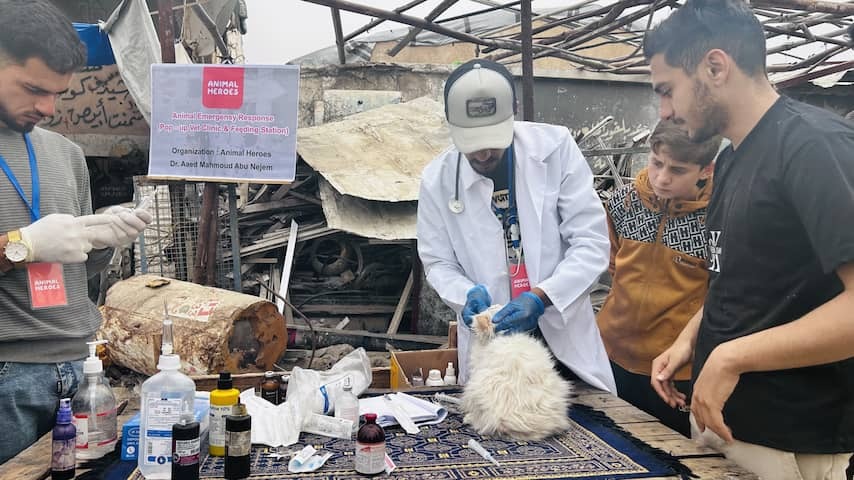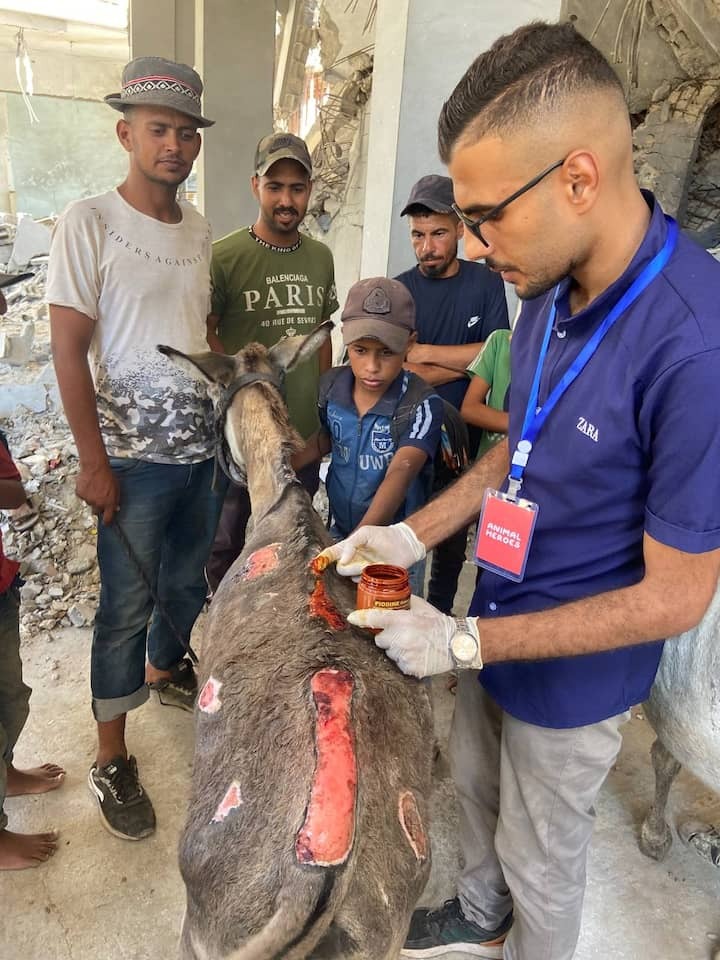
While Gaza is Largely Destroyed and There is Almost No Food to Be Found, 26-Year-old Ayed Works Every Day in a Pop-up Veterinary Clinic. Because not only people suffer from hunger and bombings, animals are also affected.
Warning: this article contains images that may be experientiary as shocking.
Ayed Mahmoud Abu Nejem Has Lived in the Enclave His Entire Life. Althegh He was sacrificed a Scholarship to Study Medicine Abroad, He Chose to Study Veterinary Medicine in Gaza. “That was always my dream,” he tells nu.nl. “Duration my studies, I opened a veterinary clinic under the supervision of a doctor. This allowed me to gain experience.”
Currently, Ayed is Staying in Deir al-Balah in the Center of the Gaza Strip. Before the war started, he lived in The North, but now he has had to move six times. “It’s not safe here, it’s not safe anywhere. But we’re still alive,” he says.
He also has a pop-up clinic in Deir al-Balah. “I used to have a permanent clinic, but it was destroyed by bombing. After rebuilding it five times, I Lost Hope a Little.”
Until he Joined Animal Heroes a year ago. With the help of that Dutch Aid Organization, he was able to set up the pop-up clinic. “We can move it more easy. Every time I have to evacuate, it comes with me.”
Ayed is one of the few veterinarians still working the war. People Bring Their Animals to his Clinic, But he also Travels Around himself. “I Mainly do that in the South of Gaza, Between Deir al-Balah and Khan Younis. It is a Large Area in which it is Difficult to move around, but you have to take that risk to be able to help the animals.”
Wounds caused by Rockets or Pulling Heavy Carts
Palestinians end up with all child or animals at Ayed’s Clinic, But they are usualy donkeys, horses and cats. They mainly have problems caused by the food shortage. He treats many animals that suffer from digestive problems, malnutrition and dehydration.
“Some pets share the food of their owners, which is very limited. The cats in Gaza Eat Everything, including grass, bread and lentils, to Satisfy Their Hunger. There is no grain for horses and donkeys, so -theyan.” Out of the veter, ” “And the Water They Drink is Salty because the filter Systems Don’t Work, which Causes Stomach Problems.”
But ayed also sees other problems with horses and donkeys. “With them, I see serious wounds caused by the shrapnel from rockets,” he says. The animals also get wounds from pulling heavy carts. They have a lot of weight due to the food shortage. Their Bones Therefore Protrude and Rub Against the Carts.
“We can treat that with antibiotics, but the real solution is food. They Become Stronger and No Longer Suffer from Protruud Bones Bones That Start to Rub,” Ayed Explains. Medicines Are Difficult to Obtain in Gaza, Although He can buy them in a Distribution Center That Is Still Standing. But Getting There is also Difficult and Dangerous.
The Text Continues Below the Image.

‘Deceased Animals Are Now in A Better Place Than I Am’
Before the war, there were about 400,000 animals in Gaza, but that number has decreased by more than 80 percent since October 2023. “Sometimes I can’t save the animals anyals anymore and I have to let them go. I find comfort in the fact that they do not that unnoticed. And that they are now in a better place than I am.”
It would not be strange to think that ayed has lost hope after almost two years of war. Duration that time, his house and clinic were destroyed, he lost loved ones and he himself was kured in An Israeli Air Strike. And he too is suffering from the hunger crisis. But he himself thinks differently about that.
“I don’t let it destroy my hope for the future. Every day I get up and i am hopeful and grateful for all the help we receive from outside,” he says. “I know I’m not alone, and that people care about us and the animals here. We all have the right to life, safety and freedom.”